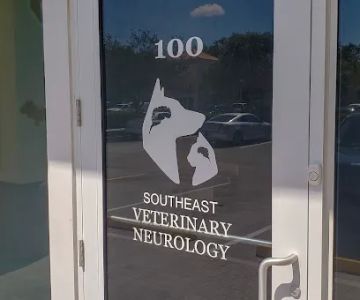Can a Non-Veterinarian Own a Veterinary Practice in New Jersey?
- Understanding Veterinary Practice Laws in New Jersey
- Can a Non-Veterinarian Own a Veterinary Practice?
- Exceptions to the Rule: Ownership Guidelines
- Licensing and Operational Considerations for Non-Veterinarians
- Steps to Owning a Veterinary Practice as a Non-Veterinarian
1. Understanding Veterinary Practice Laws in New Jersey
In New Jersey, as in many states, the ownership of a veterinary practice is generally regulated by laws that ensure animal health care is managed by licensed professionals. The primary concern is that veterinary services must be provided by individuals who are qualified and capable of delivering proper care to animals. The laws are designed to safeguard public health, animal welfare, and ensure high standards within the veterinary industry.

7280 Boynton Beach Blvd STE 100, Boynton Beach, FL 33437, USA
See Details2. Can a Non-Veterinarian Own a Veterinary Practice?
While it might seem unusual, it is indeed possible for a non-veterinarian to own a veterinary practice in New Jersey. However, the law specifies that the day-to-day medical practices and decisions must be carried out by a licensed veterinarian. The non-veterinarian owner is usually restricted to managerial and financial responsibilities, rather than clinical or medical care.
The core principle here is that a veterinary practice must always be under the supervision of a licensed veterinarian to ensure the animals' health and well-being. For example, you can own the practice as a business, but you must hire a licensed veterinarian to provide veterinary services. The non-veterinarian’s role is largely administrative, handling areas like staffing, finances, and business strategy.
3. Exceptions to the Rule: Ownership Guidelines
Despite the general rule that veterinary practices must be owned by licensed professionals, there are certain exceptions to this rule in New Jersey. A non-veterinarian can own a veterinary practice if the practice is managed under specific circumstances. These could include partnerships or arrangements where the non-veterinarian shares ownership with one or more veterinarians who are responsible for medical oversight.
In some cases, a non-veterinarian might be allowed to own multiple practices, provided they ensure each practice complies with state veterinary regulations. It’s important for any potential owner to seek legal advice to navigate these regulations and understand the nuances of such exceptions.
4. Licensing and Operational Considerations for Non-Veterinarians
For non-veterinarian owners, understanding the licensing and operational requirements is crucial. While you do not need a veterinary license to own a practice, you must comply with all business-related licensing regulations in New Jersey. This includes securing the proper business licenses, understanding zoning laws, and possibly obtaining additional permissions depending on the scale and nature of the practice.
As an owner, you’ll also need to ensure that all veterinarians working in your practice are properly licensed and adhere to state laws. Non-veterinarian owners should also be mindful of the financial regulations governing veterinary practices, as failure to meet these requirements can lead to penalties or the closure of the practice.
5. Steps to Owning a Veterinary Practice as a Non-Veterinarian
If you are a non-veterinarian interested in owning a veterinary practice in New Jersey, here’s a step-by-step guide to help you get started:
- Research State Laws: Understand the specific laws and regulations governing veterinary practice ownership in New Jersey.
- Find a Licensed Veterinarian: Partner with a licensed veterinarian who will be responsible for the medical and clinical duties.
- Obtain Necessary Business Licenses: Secure all the required business licenses to operate in New Jersey.
- Consider Financial and Operational Aspects: Plan your business structure, marketing, staffing, and financial management.
- Consult Legal and Veterinary Experts: Work with legal professionals and veterinarians to ensure all aspects of the business comply with state laws.
By following these steps, non-veterinarian owners can successfully navigate the process of owning a veterinary practice in New Jersey while ensuring compliance with local laws and regulations.










